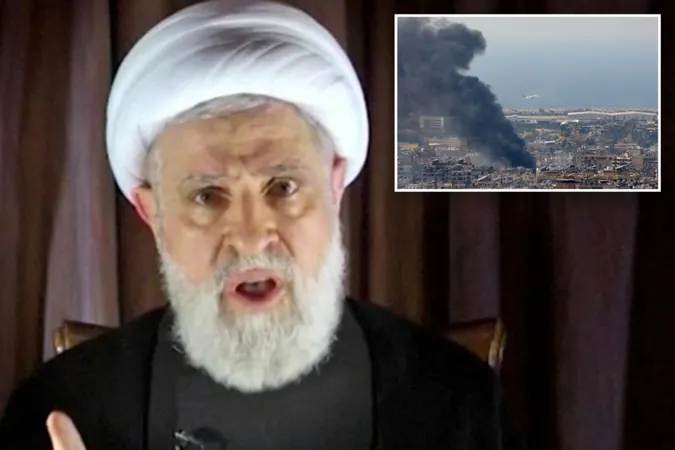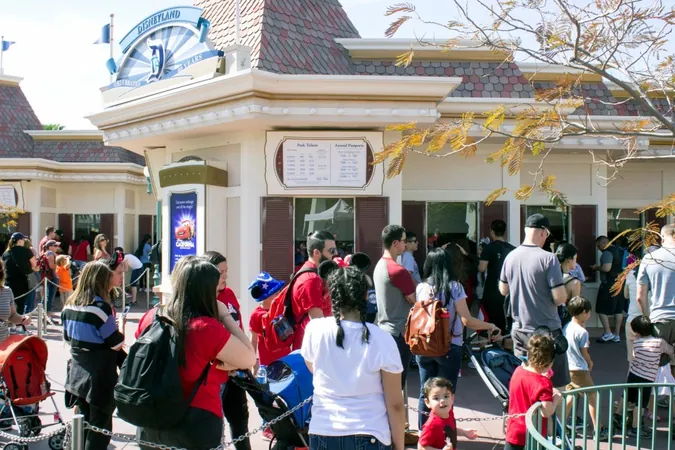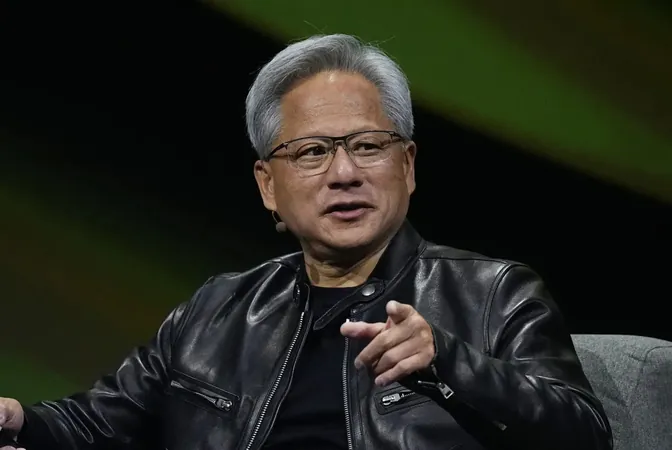
Hezbollah Prepares for Cease-Fire Talks with Israel After Heavy Losses
2024-10-08
Author: Ming
In a surprising shift amid escalating tensions, Hezbollah announced on Tuesday its readiness to engage in cease-fire talks with Israel. This move follows a series of significant setbacks the group has faced in recent months, including the deaths of key leaders and high-ranking officials.
The announcement came just hours after Hezbollah launched a barrage of over 100 rockets targeting Israel, specifically the northern city of Haifa, marking the intensity of the ongoing conflict. This strike resulted in injuries, including one elderly woman who was hurt by shrapnel, and followed another missile attack that injured two others in the same area.
Hezbollah's deputy secretary general, Naim Qassem, expressed support for a truce with Israel during his statement, which marks a notable change from the group's previous stance. "We support the political efforts led by [Lebanese Parliament Speaker Nabih] Berri under the banner of achieving a cease-fire," Qassem stated, indicating a potential turning point in negotiations that have typically been conditioned by the war in Gaza.
This overture for peace talks comes at a time when Hezbollah has been under immense pressure from Israeli military operations. The group has witnessed a drastic reduction in its leadership due to targeted Israeli airstrikes, which resulted in the deaths of Hezbollah chief Sayyed Hassan Nasrallah and his potential successor, Hashem Safieddine. The Israeli Defense Forces (IDF) confirmed that they have eliminated over 200 Hezbollah operatives in recent operations, contributing to the group's weakened state.
Hezbollah's communications and operational capabilities have also suffered due to a recent suspected Israeli attack on their communication systems, which resulted in the deaths of dozens of personnel and injuries to thousands. As Israel continues its ground operations aimed at dismantling Hezbollah's military infrastructure and weapon stores, the toll on the group's operations has been severe.
Despite Hezbollah's willingness to pursue a cease-fire, uncertainty looms over whether Israel will accept the proposal. Israeli Prime Minister Benjamin Netanyahu has made it clear that military operations will persist until there are guarantees that Hezbollah will no longer pose a threat to northern Israel.
The international community, particularly the United States and France, is closely monitoring the situation, urging both sides to consider a cease-fire before the conflict escalates into a larger regional war. The current developments suggest a complex interplay between military pressure and diplomatic efforts, highlighting the fragile state of peace in the Middle East.
Will this truce mark the beginning of the end for hostilities, or is it merely a tactical pause in an ongoing conflict? Only time will reveal the true intentions behind this unprecedented communication from Hezbollah.




 Brasil (PT)
Brasil (PT)
 Canada (EN)
Canada (EN)
 Chile (ES)
Chile (ES)
 España (ES)
España (ES)
 France (FR)
France (FR)
 Hong Kong (EN)
Hong Kong (EN)
 Italia (IT)
Italia (IT)
 日本 (JA)
日本 (JA)
 Magyarország (HU)
Magyarország (HU)
 Norge (NO)
Norge (NO)
 Polska (PL)
Polska (PL)
 Schweiz (DE)
Schweiz (DE)
 Singapore (EN)
Singapore (EN)
 Sverige (SV)
Sverige (SV)
 Suomi (FI)
Suomi (FI)
 Türkiye (TR)
Türkiye (TR)